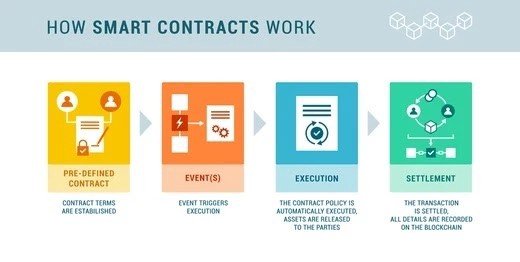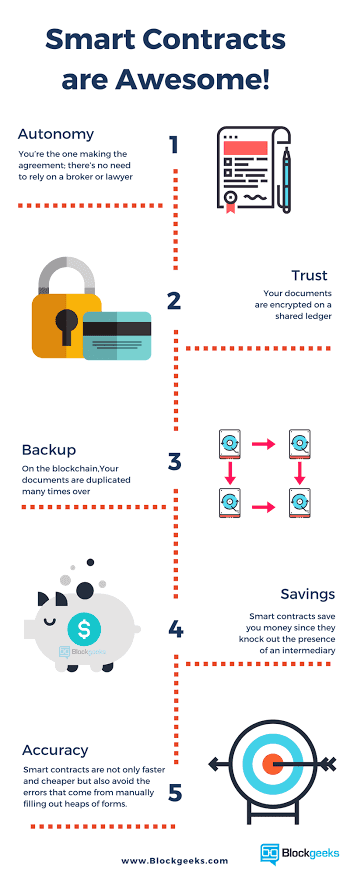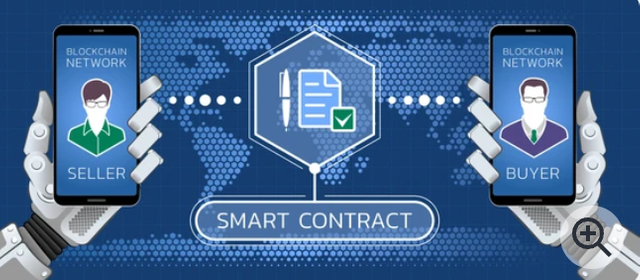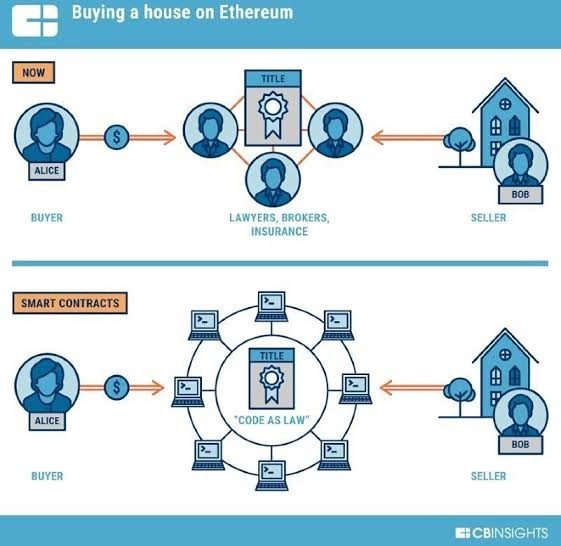Understanding Smart Contracts In Simpler Terms

Blockchain terms like "Smart Contracts" may be simple to understand for Technical persons. Yet, most non-technical persons find it difficult to understand what it means. This article will explain smart contracts in simple terms. Let’s get right into it!
What are smart contracts?
Khan, S.N et al., [1] defines Smart Contracts as executable codes that run on top of the blockchain to facilitate, execute, and enforce an agreement between untrustworthy parties without the involvement of a trusted third party.
This means, every transaction made using Smart Contracts is between both parties. No individual (solicitor) or institution (bank) will serve as a middleman. The transactions will be accurate, faster, secured, and less costly.
Before we head on to how it works, you should know that Smart Contracts can be any computer program. It is not limited to monetary transactions, it has other applications. It can be used to send and buy any digital asset, pay your rent, register your vehicle, book an appointment, transport medication, transfer property ownership, vote, and lots more.
How it works

Smart contracts are written lines of code on a blockchain consisting of "if/when…then…" statements. When predetermined conditions are met and verified, a network of computers executes the actions (voting, sending assets, issuing a ticket, and more). Once these transactions are completed, the blockchain is updated, and nothing can be changed. The results from the transaction are seen by those who granted the permission.
Traditional Contracts vs Smart Contracts
Traditional Contracts: Transactions take about 1 to 3 days.
Smart Contracts: Transactions take minutes.
Traditional Contracts: Remittance is manual.
Smart Contracts: Remittance is automatic.
Traditional Contracts: An Escrow is necessary.
Smart Contracts: Escrow may not be necessary.
Traditional Contracts: Transaction fee is expensive.
Smart Contracts: Transaction fee is a fraction of the cost.
Traditional Contracts: You have to be present.
Smart Contracts: Everything is digital.
Traditional Contracts: A third party is involved, not 100% secured.
Smart Contracts: 100% secure because it is on a blockchain, and no third party is needed.
Benefits of Smart Contract

Accuracy
There's no paperwork to process and no errors to correct.
Speed
The transitions are fulfilled fast since there's no third party.
Efficiency
Smart contracts are digital and automatic, so the contract is executed once a condition is met.
Security
Since Smart Contracts are developed on a blockchain, they are encrypted, making them hard to hack. Moreover, each smart contract on a distributed ledger is connected. The previous one and the ones yet to be executed. Hackers would have a hard time altering any record because they will have to alter the entire chain.
Backup
Every Smart Contracts transaction is duplicated, so each party has a record.
Real-World Applications of Smart Contracts

Medical
Smart Contracts can be used in the medical industry to aid in booking and consultation [2]. It can reduce the manual booking process by storing booking information on a blockchain—aid in not overloading the booking request and ensuring no lost time in the booking process.
Ensure that treatment information provided to patients is up-to-date and stems from a trusted source. Patients' medical records with sensitive information can be kept private using Smart Contracts. Their data will remain encrypted via blockchain technology until the doctor needs it.
Medical supply chain transparency is possible using Smart Contracts. Sonoco and IBM are working towards providing a blockchain-based platform that tracks temperature-controlled pharmaceuticals.
Insurance
The main challenge in the insurance industry is the lack of trust. People don't trust insurance companies because there are so many false claims. With smart contracts, the issue of trust can be partially eliminated. Since traditional contracts rely on third parties, the process is expensive and slower. Smart contracts do not need human interference, which increases transparency. And, given that each transaction is recorded on a blockchain, all parties involved can see the logged transactions. It may speed up processing, lower administrative cost, and store agreement information.
Mortgages

Payment processing is one major mortgage issue, and Smart Contracts looks to solve this. It will make such transactions secure, faster, and cheaper. Both parties can digitally sign a contract and update the property ownership to reflect the change of ownership.
Voting
Voting fraud happens in even the most secured elections. Fraudsters still manipulate the system in their favor despite the secured digital process. With the introduction of Smart Contracts, the voter's identity is validated and recorded. Furthermore, the voting process will be secured since the blocks are impossible to alter once recorded.
In conclusion, Smart Contracts is much more than investing in bitcoin and other Altcoins. When you dive into what blockchain is and its possibilities, you'll be excited about the future.
References
[1] Khan, S.N., Loukil, F., Ghedira-Guegan, C. et al. Blockchain smart contracts: Applications, challenges, and future trends. Peer-to-Peer Netw. Appl. 14, 2901–2925 (2021). https://doi.org/10.1007/s12083-021-01127-0
[2] Kormiltsyn, Aleksandr & Udokwu, Chibuzor & Karu, Kalev & Thangalimodzi, Kondwani & Norta, Alex. (2019). Improving Healthcare Processes with Smart Contracts. 10.1007/978-3-030-20485-3_39.
written by tessywrites.com